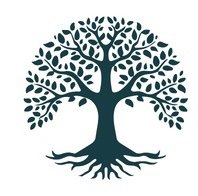Why Emerging Elders?
“When a society abandons its elders, the elders abandon themselves” Michael Meade
There is a bold sign written over day one of every human life, regardless of country, gender, social status or environment and it reads,
ROAD AHEAD – BEWARE
ONLY TWO THINGS ARE CERTAIN
YOU WILL AGE AND DIE
YOU WILL BECOME SOMEONE
Embracing life means having such attitudes as
‘I am going to age and eventually die and leave some kind of legacy’ (even if it the legacy of an unlived life)
and
‘I am going to become someone, so who am I becoming and who do I want to become?’
Many of us, certainly in the West, don’t seem to have more than one mental map for navigating the process of growing up. When I talk about aging, I’m not just talking about people in their 60’s, 70’s, 80’s or 90’s, I’m talking about teenagers entering in to their twenties, thirties, forties and fifties. I’m talking about the whole life span.
We aren’t asking many questions about how to navigate and live life well in the complete context of being humans, inescapably interwoven in the dance of nature and sitting on the edge of mystery and wonder.
We don’t often lift up our heads, like the wise seven-generation people do. (First Nation Indians wisdom to was to make all decisions in the light of past generations wisdom and how it would affect the next seven generations to come) Mark Kearney, ex-Governor of the Bank of England, aptly observes that cutting down a few square miles of Brazilian rainforest today equals some fast money today. But nowhere does this decimation show up on a balance sheet for its impact on generations to come.
We don’t seem to have many people who can actively help us to navigate life wisely.
Did we ever?
I think so and in certain instances, from my travels and work predominantly in Africa, I know so.
So, who were these people?
The elders.
Those older wiser people embedded in our communities of living and working, who have made more of life journey than me and have the depth and breadth of wisdom to ask great questions, deep questions, higher-order questions, challenge and support questions and show us other mental maps to journey by.
Where are they now? Our societies have largely abandoned them and increasingly even in cultures where they were strong parts of the community.
What affect has this have?
We abandoned ourselves as potential elders for this and the upcoming generation and so that embedded wisdom was potentially lost for our peers right down to our grandchildren. As Michael Meade says, ‘when a society abandons its elders, the elders abandon themselves’. When eldership ceases to be a part of the human story, the narrative of our everyday lives, then we don’t think about them anymore and consequently e don’t think about ourselves becoming elders and don’t think about how to seed the next generation of elders, for the benefit of generations to come. We are left with an aging population (from late teens until death) of compass-less people who only can muddle their way through the new individualistic, consumerist, spiritually devoid landscape that has open up in the past century. Olders but not elders, who have got lots of experience but haven’t processed the wisdom, have lost confidence that they have anything to offer the next generation, fearful of death, fearful of retirement, fearful of the loss of identity, fearful of irrelevance. And fear always makes us smaller and always leads to an unlived life.
The mission of Emerging Elders is to push against the tide and to recover eldership for the next generations. To plant seeds in the lives of young people so they do not just get older, but get elder. That they learn to lead their lives, love their world in all its dimensions and leave a legacy…something that will outlive them for the benefit of future generations.
Emerging Elders exists to reverse the downward cycle that Michael Meade speaks of, to rework his sentence into…
When a society recovers its elders, the elders will recover themselves.

